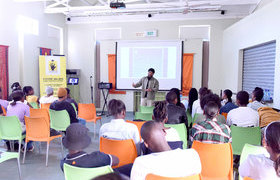A peek into why we read
25 January 2023 | Story Kamva Somdyala. Photo Lerato Maduna. Read time 4 min.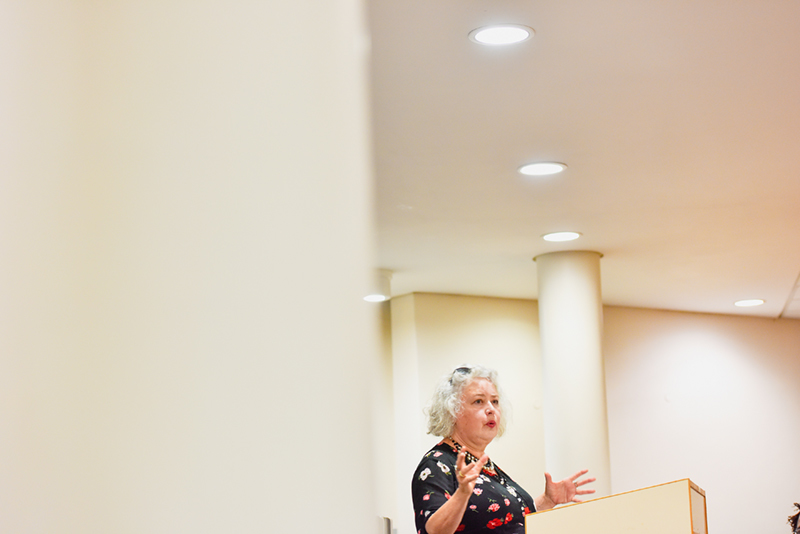
As part of the University of Cape Town’s (UCT) Summer School programme, authors Helen Moffett and Bongani Kona posed questions around why, how and what we read.
What makes us pick up a book in a bookstore? What creates the attraction? What makes us put it down again? What makes us move to the checkout line with the book in our hand? What makes us borrow a book from a friend? What criteria do we use to choose? Is it the blurb? The cover? The author?
These are some of the open-ended questions Moffett asked the audience as she kickstarted the series about the practice of reading.
Most book clubs and reading groups focus on what to read. Moffett, together with Kona, looked at why and how we read: the extent to which this can be an individual, communal and creative process.
“Your personal taste and circumstances provide answers to questions about reading. These themselves are worth digging into. I have a theory that all reading is biographical: how does who we are influence our reading?” Moffett asked.
She has worked with Africa’s brightest literary and academic writers, including Lauren Beukes, Zakes Mda, Ivan Vladislavić, Sarah Lotz, Thando Mgqolozana, Gabeba Baderoon, Ade Adebajo, Petina Gappah, Elinor Sisulu, Liesl Jobson and Sindiwe Magona.
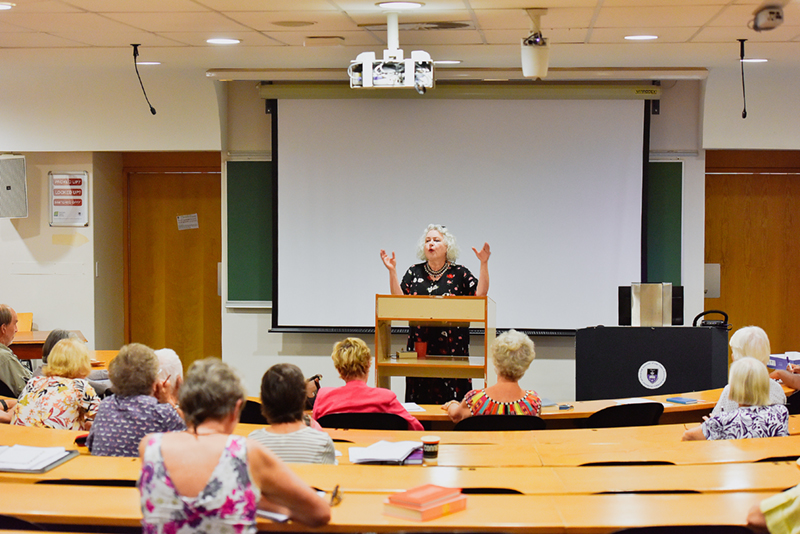
Below the surface
“There’s clearly a lot that happens below the surface when we read, which we tend not to think about. It’s not instinctive, but it’s a skill we learn if we’re lucky, when we’re very young, and we spend the rest of our lives taking it for granted,” Moffet said.
“Readers are a fickle bunch of people: the individual essence that makes people respond to what is between the covers of a book is unique and impossible to analyse.
“I go to the imprint page. That’s because I’m nosey. I want to know which of my colleagues edited the book, who proofread it, who designed the cover?
“The other thing I like to look at is the acknowledgements page. It’s like wholesome gossip and to keep tabs on who is doing what in the industry.”
Kona began his discourse by introducing the notion of accidental encounters and how unplanned rendezvous lead people to reading other people in a certain way, almost giving credence to the adage, “Don’t judge a book by its cover.”
Kona, a UCT alumnus, is a writer, editor and lecturer. Most recently, he has edited Our Ghosts were Once People: Stories on death and dying, which, according to Jonathan Ball Publishers, is a “poignant and thought-provoking anthology”. The stories contained in the collection “range from the deeply personal to the political to the philosophical”.
“Reading breeds curiosity, especially as it relates to reading genres/authors and topics we aren’t used to: it’s about being curious about lives other than your own; being curious about lives that come from places that you aren’t from.
“What does this mean when we completely block ourselves off from that? What does it mean when we border across and go to these places? A book is always an invitation in this sense,” Kona said.
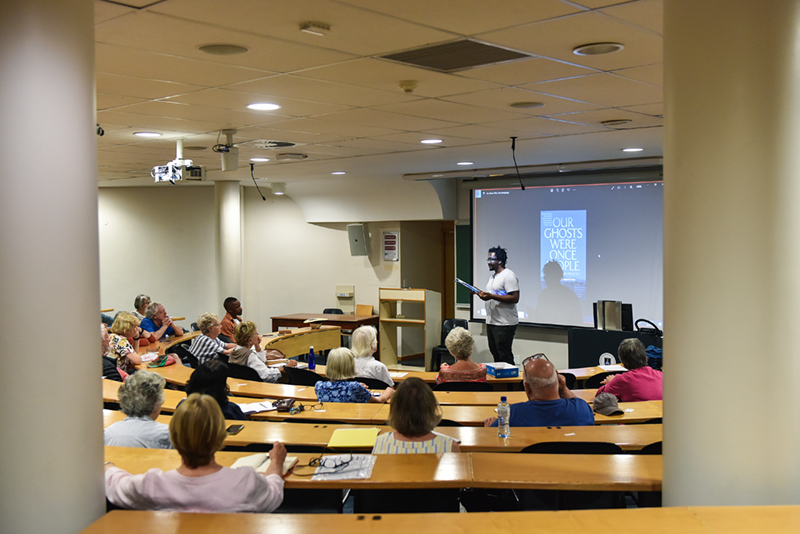
Role of publishers
The role of publishers cannot be overemphasised, the two authors agreed.
A publisher, Moffett pointed out, takes a leap of faith when agreeing to publish a book. It is a journey into the unknown, particularly because of the capricious nature of readers.
For Kona, there is a greater deal of deference given to the international market than there is the local.
“It is my contention that in the same way that Hollywood films crush locally made [ones], the same thing happens to books,” Kona noted.
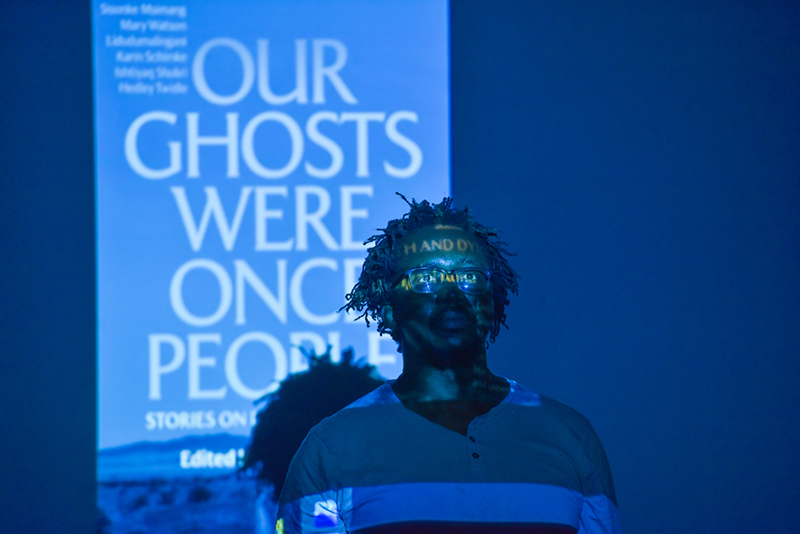
He added: “There is something really troubling about this, but it is the economy that we live in.”
 This work is licensed under a Creative Commons Attribution-NoDerivatives 4.0 International License.
This work is licensed under a Creative Commons Attribution-NoDerivatives 4.0 International License.
Please view the republishing articles page for more information.









